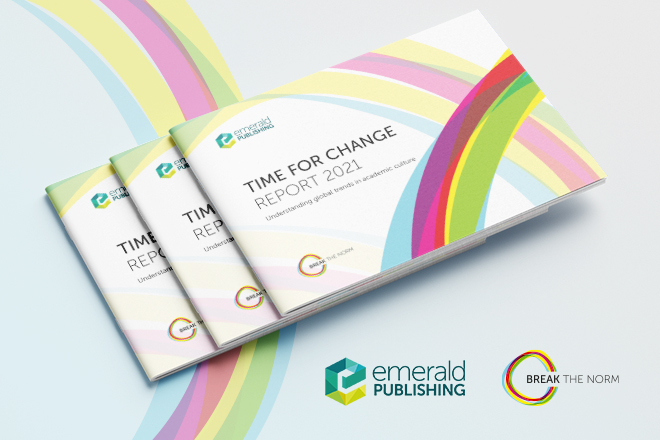An academic career can be a rough ride. Job insecurity, lack of funding, pressure to publish and increased competition can all take their toll, causing academics to feel stressed, isolated, and to even quit the sector.
Women and other minority groups can often face inequality within the workplace, despite initiatives to improve disparities. It is common for these groups to receive lower pay and wait longer for promotion, making it ever harder to progress in their careers.
Job dissatisfaction, financial pressures and mental health issues were already an issue for some academics prior to the COVID-19 crisis, but the challenges of the pandemic such as the move to online teaching and home schooling have added to their difficulties. The pandemic may have affected all academics, but not everyone has been impacted equally, and women have tended to fair worse, often due to taking on more childcare and home responsibilities, leaving less time for research.
On this page
In the report
- Widening inequalities
- Research evaluation
- Academic culture [this page]
- Openness & transparency
- Role of the publisher

Improving academic culture, a view from the publisher and from industry
Emerald's Sharon Parkinson and Goal Advisor for Healthier Lives Dr Zana Khan, reflect on what can be done to improve academic culture in the industry itself as well as by publishers.
Quitting the industry
Given the pressures and inequalities within academia, it is unsurprising that our survey found that 1 in 5 (19%) women versus 12% of men consider leaving academia all the time. In line with this, more men (42%) than women (31%) have never thought about leaving the sector due to the culture, practices or pressure.
Academics in Australasia appear to be the unhappiest with nearly 1 in 3 thinking all the time about leaving, followed by 1 in 4 of those in North America. In contrast, the majority (59%) of those in India have never considered leaving due to culture, practice or pressure. The same proportion of academics in the UK and Australasia (8%) are planning to leave academia in the next 12 months – the highest percentage of all regions.
Balancing act
The personal impact of the job on academics remains the same as 2020, with around 1 in 10 reporting a large negative affect on their career ambitions (8%), relationships (8%), mental health (9%), physical health (10%) and sleep patterns (12%). Women academics report a higher impact than men in all areas. Impact on sleep was the area academics most suffered, chosen by 16% of women and 9% of men.
Where academics live in the world appears to make a difference to the personal impact of the job. Academics in the West seem to be more negatively affected than those in low- or middle-income regions. Asia scored very low in all areas, whereas Australasia and the UK had the top answers for all options – particularly high was their jobs having a large negative effect on their mental health (22% in Australasia and 17% in the UK), both risen from 2020.
Under pressure
Inadequate funding continues to be the largest pressure point for academics, with 58% of academics selecting this option, followed closely by pressure to publish (54%) and outdated institutional management practices and policies (53%). Inequality is more of an issue for women academics (41% versus 26% of men), who also feel under more pressure to publish (61% versus 51% of men).
Academics in Australasia appear to feel the strain most, with 77% citing squeezed institutional budgets, 68% outdated institutional management practices and policies, 45% job security/precarious contracts and 41% inequality. These factors may explain why Australasians are thinking about moving away from academia. SSA took the top spot in three areas compared to other regions – inadequate funding/resources for research (81%), lack of a support network (53%), and pressure to prove the real-world impact of research (43%). Despite the pressure points, academics in SSA are less inclined than Western regions to think about leaving the sector and only 2% are planning to leave academia in the next 12 months.
When we consider the findings alongside academic comments, there is a sense that divides have become wider and more entrenched, with many feeling marginalised and blaming ‘the others’ – East versus West and men versus women. Some academics appear to be uneasy about the future of their careers and believe they must make a choice between teaching or research, while others cite ageism, classism, sexism, racism, language barriers, ‘boys clubs’, and the rise of ‘woke’ culture as fuelling divisions. The likely consequence of this disquiet is that some may leave research intensive roles or accept that research is no longer a viable career. As a sector we need to work quickly to turn the tide to retain diverse talent, particularly at a time when now more than ever we need solutions to widening social disparities.
Inequalities
Gender inequalities and lack of recognition of people’s value and expectation that ‘impact’ equals securing large funds
Ageism, classism, sexism – misandry in the social sciences”
Culture of ambition being replaced by a culture of ‘wokeness’
Overworked
The job cannot be done in the 8 hours per day for which one is paid. Academics work all the time (even when on leave). Line managers do not advise one to do otherwise, so 24/7 becomes the norm. When competing for promotion, that is the benchmark. It’s outrageous
Teaching loads doubled during the pandemic, administration selectively interprets policies, and senior faculty don’t care about and even deride junior faculty. Peer review in social sciences can often feel arbitrary. Editors need to be more transparent. Everything in the academy needs to change!
Moving to research-intensive jobs will ruin what little peace I have, so that’s not a workable career and health strategy... I chose a teaching institution so I could do the research I wanted and at my pace
Quantity above quality
Academic culture is based on: ‘publish or perish’, reducing the quality of research
Tenure is obsolete and is fuelling a severely dysfunctional culture in higher ed
Younger researchers are hungry for change. But the elder academicians rule the faculty. There are not even open positions after PhD in my faculty for five years. There is limited funding for the project for postdocs and there are no graduate students to work with. Plus, the university does not give support for gold open access. ResearchGate is highly effective in sharing papers and having more citations. But many publishers put an embargo for sharing
The data
How much do you agree your institution does well in the following areas??











| Statement | 2021 | 2020 |
|---|---|---|
| They take action to ensure there is work/life balance | 30 | 28 |
| They actively support diversity & inclusion | 50 | 46 |
| They value personal development | 43 | 41 |
| They take action when there are poor practices | 32 | 30 |
| They provide equal opportunities for all | 41 | 40 |
| They fairly reward and recognise the contribution of employees | 34 | 31 |
| They provide mentoring and networking opportunities | 36 | 32 |
| My manager is supportive | 50 | 48 |
| They provide access to mental health services / support networks | 36 | 38 |
| They focus on research that is aligned to the SDGs | 36 | n/a |
| Their priorities are aligned to the SDGs | 38 | n/a |
Please type 3 key words that most describe the organisational culture
in your institution.

| Word | Count |
|---|---|
| Supportive | 55 |
| Traditional | 48 |
| Bureaucratic | 39 |
| Open | 31 |
| Competitive | 25 |
| Conservative | 25 |
| Research | 21 |
| Toxic | 20 |
How much of an impact does your job have on the areas below?






| Statement | % 2021 | % 2020 |
|---|---|---|
| Your family / personal relationships | 8 | 8 |
| Your mental health | 9 | 9 |
| Your physical health | 10 | 8 |
| Your sleep patterns | 12 | 13 |
| Your ambitions / career motivation | 8 | 8 |
| Your motivation outside of your job | 5 | 6 |
Have you ever considered leaving academia due to the culture,
practices or pressure?
| Statement | No, never | Occasionally | All the time | Planning to leave in next 12 months |
|---|---|---|---|---|
| Overall 2021 | 38 | 43 | 15 | 4 |
| Overall 2020 | 34 | 48 | 14 | 4 |
| UK | 23 | 46 | 23 | 8 |
| Australia | 20 | 41 | 31 | 8 |
| Asia | 47 | 40 | 9 | 4 |
| India | 59 | 32 | 7 | 2 |
| Latin America | 39 | 48 | 12 | 1 |
| ME&NA | 38 | 50 | 9 | 3 |
| N&WE excl UK | 33 | 45 | 18 | 4 |
| North America | 31 | 37 | 26 | 6 |
| S&E Europe | 37 | 49 | 11 | 3 |
| Sub Saharan Africa | 40 | 48 | 10 | 2 |
What do you think are the main pressures in academic life today?










| Statement | % 2021 | % 2020 |
|---|---|---|
| Inequality | 31 | 32 |
| Pressure to gain tenure | 26 | 29 |
| Inadequate funding/resources for research | 58 | 58 |
| Squeezed institutional budgets | 49 | 53 |
| Pressure to publish your research | 54 | 58 |
| Pressure to prove the real-world impact of research | 26 | 24 |
| Outdated institutional management practices and policies | 53 | 59 |
| Lack of a support network | 37 | 38 |
| Job security / Precarious contracts | 34 | 38 |
| Pressure of league tables | 18 | 19 |
Download the report as a PDF
You can get a PDF version of our Time for change report by filling in this form; you'll be able to download the report instantly.






